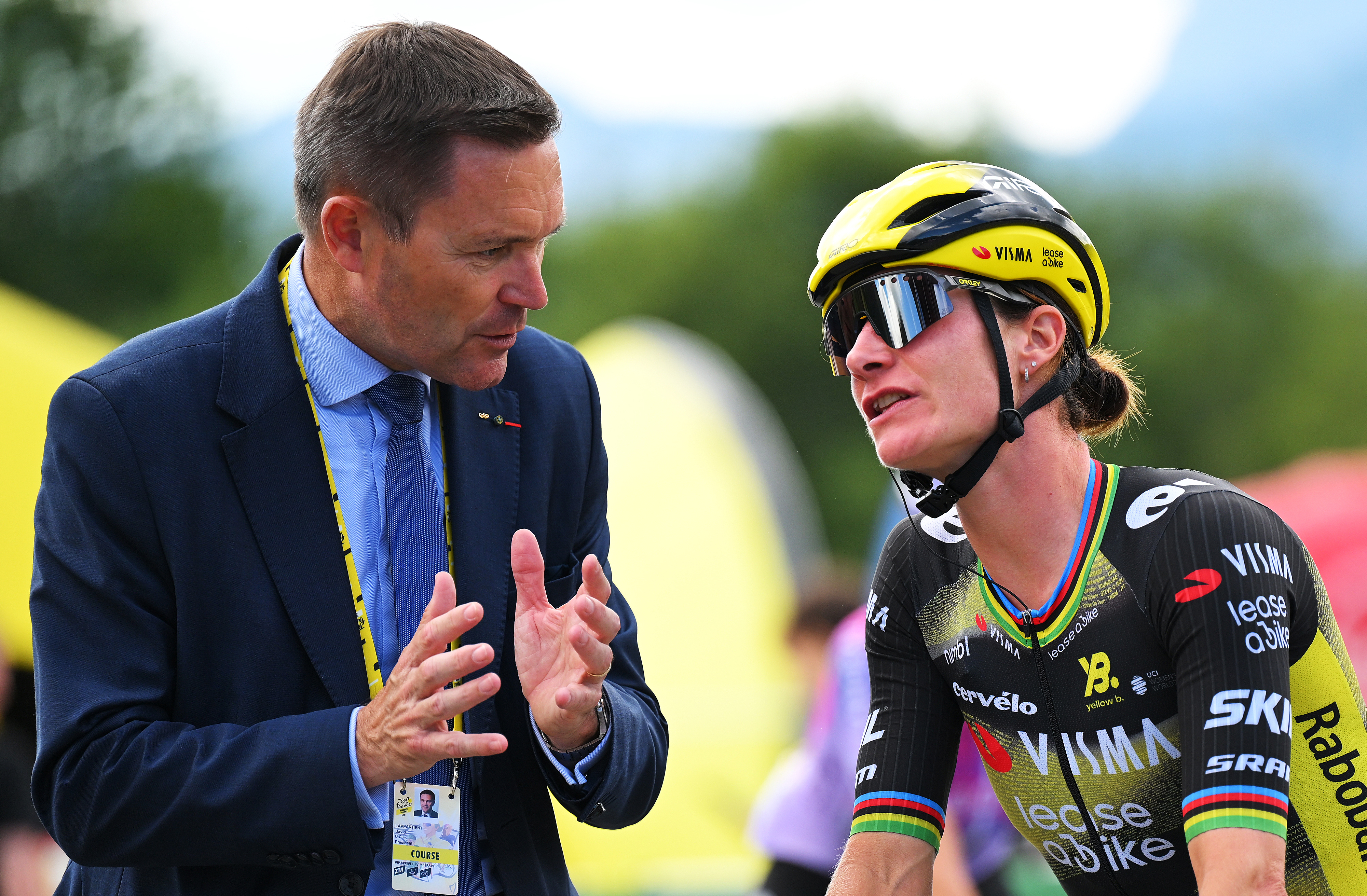Peloton rides on at the Abu Dhabi Tour despite scorching heat
High temperatures make racing difficult
The latest race content, interviews, features, reviews and expert buying guides, direct to your inbox!
You are now subscribed
Your newsletter sign-up was successful
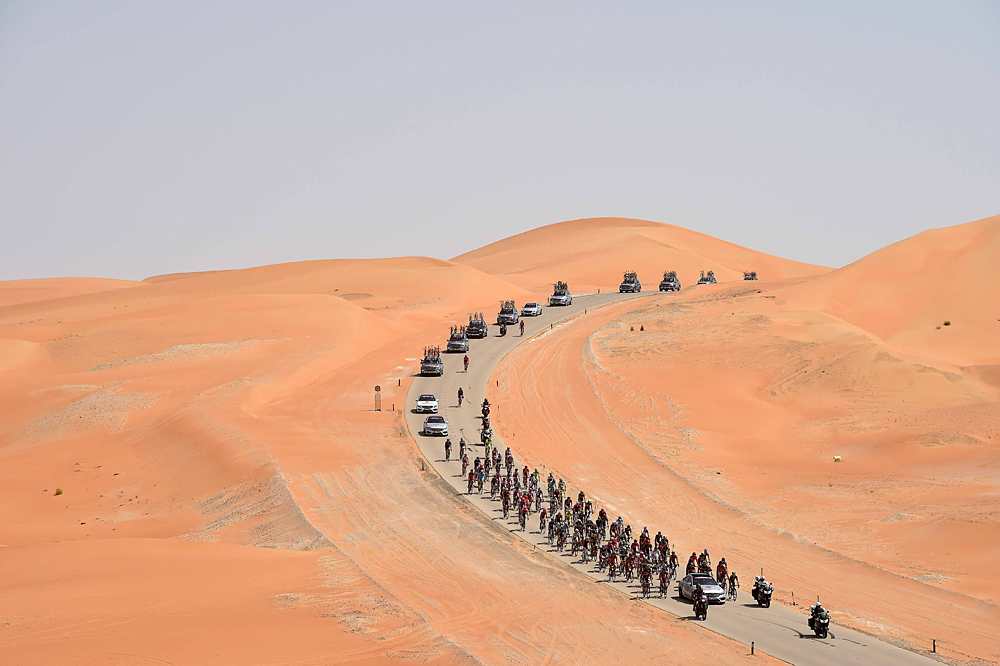
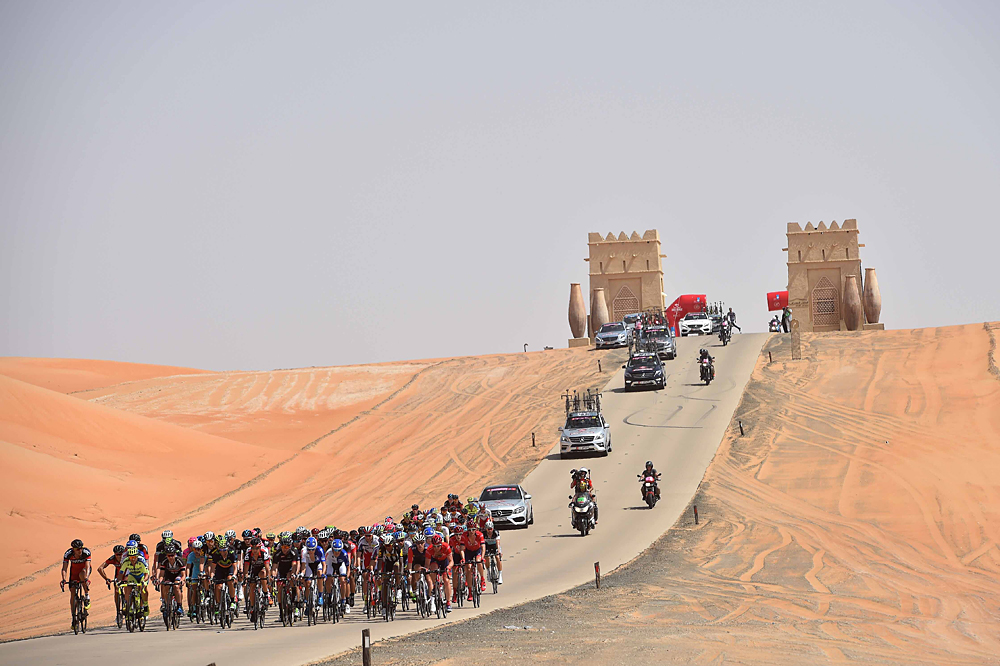
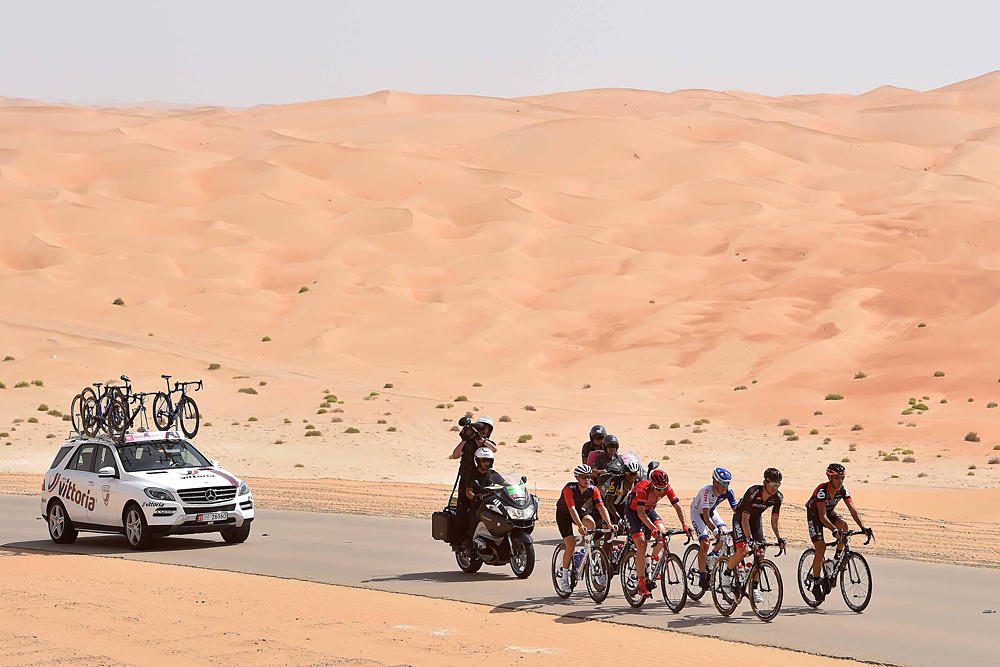
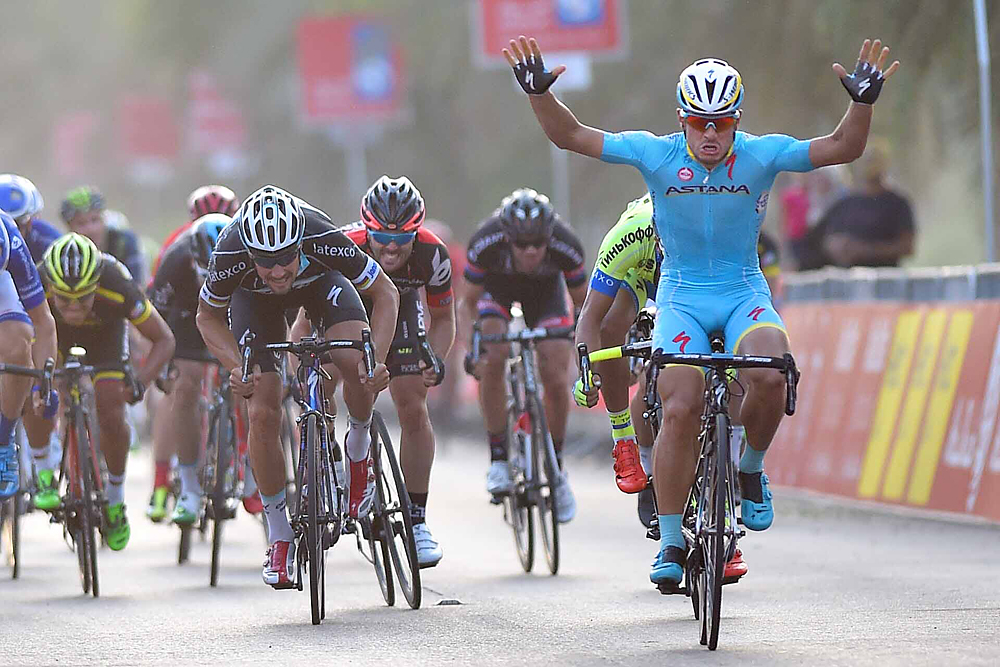
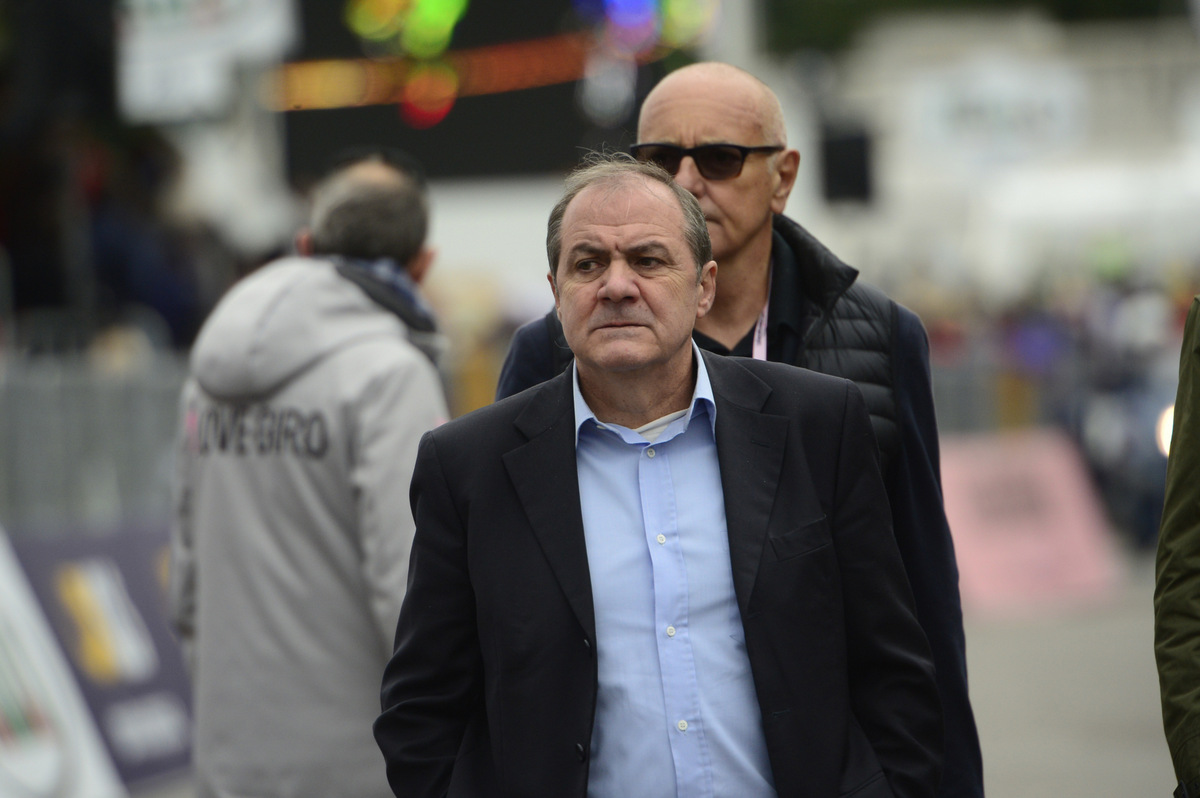
The first stage of the Abu Dhabi Tour ended in a sprint finish with Andrea Guardini (Astana) out powering Tom Boonen (Etixx-QuickStep) and Daniel Bennati, who was given a lead out by world champion and Tinkoff-Saxo teammate Peter Sagan. However, most of the peloton was just happy to have ended a torrid four hours in the heat.
Video: On-board training with Peter Sagan and Tinkoff-Saxo ahead of Abu Dhabi Tour
Riders train for the final time ahead of the Abu Dhabi Tour
Guardini wins heat-shortened opening stage of Abu Dhabi Tour
Extreme heats causes stage shortening at Abu Dhabi Tour
Guardini distances Boonen and Bennati in Abu Dhabi Tour sprint
The air temperature was 38C when the riders rolled out of the luxurious hotel in Qasr-Al Sareb, where they spent the night, but rider's power meters showed temperatures of over 50C. A headwind and rolling roads through the desert made it difficult to race and the riders quickly went into protection mode to avoid suffering too much.
Conditions eased for the final two hours of the race after a change in direction and with the sun gradually setting over the dunes. Race organisers RCS Sport cut the 14.5km finishing circuit to appease the riders and ensure the stage finished during the live television window. They also provided extra cold water and ice from a truck behind the line of team cars.
However, some riders were still angry they had to race in the heat. Others, perhaps reflecting the general feeling in the peloton, suggested conditions were close to the limit of what was physically possible to race in and what was acceptable.
World champion Peter Sagan was happy to be wearing white clothing that helped reflect the heat but said that he did not feel well during the stage due to the heat. He was of few words but said it was 'difficult to race'.
Tom Boonen was more vocal.
"It was impossible, it went too far. At a certain point it was 54 degrees," he told the Belgian journalists on the race. "It was just impossible to race. On the first small climbs my heart rate was 170-180, so was everybody else's, without really pushing. You can ride in these conditions but you can't race. The guys in the front just fell back one by one."
The latest race content, interviews, features, reviews and expert buying guides, direct to your inbox!
Riders seemed stunned as they tried to recover at team vehicles. Most understand that the current daytime temperature of 38C is several degrees above average for this time of year. They understand the importance of the first edition of the Abu Dhabi Tour and even felt sympathetic towards race organiser RCS Sport.
"We understand we can't simply boycott a race when things are difficult. There are less and less races and less and less money in the sport. We've got do as much as we can to respect the work of the race organisers," Bennati said after finish.
"I think it was on the limit of what is acceptable. Everyone's heart rate went up really high when the road went up. I was at 180 on a bridge, which is a bit frightening. Fortunately we all used some common sense and things went okay. We all know this heat is exceptional and that it's not usually this hot. We know we can't say no, we've got to respect the organisers and they have to respect the riders."
Vegni thanks the riders
Race director Mauro Vegni was grateful that the riders finished the stage. He prefers dialogue to disruption and is a diplomat, not a dictator like his predecessor Angelo Zomegnan.
"We let the riders race as they felt fit and to protect their health. We knew how difficult it would be because the temperatures are higher than they usually are," he explained.
"We cut the stage length after considering several aspects such the television coverage and the heat. We realised it was better for everyone to cut the finishing circuit.
"I'm happy that the riders understood our problems and raced because this event is an opportunity for everyone in cycling. It's important to have races here, indeed the World Championships will be held in the region in next year. Racing here is a huge opportunity for the teams who can perhaps find new sponsor here and for the UCI who will have their Gala here. If the riders understand that then we've all made a step forward. It's important that cycling moves forward and takes every opportunity it can."
He added, to emphasis his point: "Coppi and Bartali were great but they're also dead…"
Vegni did not rule out taking further action in the remaining three stages at the Abu Dhabi Tour if needed. This could mean altering other stages and even cutting the climb to the finish on stage 3. However, he is hoping conditions will improve.
"We'll see what happens. The problem of the heat also depends on the humidity. Today wasn't as humid as yesterday and that helped things. Some wind or a slight drop in temperatures can help a lot. We'll take things day by day and see what happens."
The Abu Dhabi Tour is one of the final races before the new Extreme Weather Protocol comes into affect in 2016. In future a clear set of rules will be followed and respected by both race organisers and riders, helping to avoid possible conflict during races. With the Extreme Weather Protocol there will be more dialogue before races and alternative solutions when extreme conditions arise.
Vegni claimed he will first of all respect his own protocol.
"If it's not safe to race then I don't care about the Protocol. I'm the Protocol," Vegni argued. "The Extreme Weather Protocol is about not validating situations so that one person does not have to make a decision. It's a help to have a Protocol. Of course we'll all have different views but I'm sure we all understand when it's not safe to race."

Stephen is one of the most experienced members of the Cyclingnews team, having reported on professional cycling since 1994. Before becoming Editor-at-large, he was Head of News at Cyclingnews. He has previously worked for Shift Active Media, Reuters and Cycling Weekly. He is a member of the Board of the Association Internationale des Journalistes du Cyclisme (AIJC).
